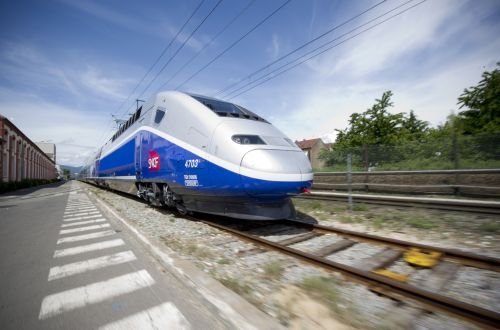In a letter to the American company on Tuesday, which bypassed Alstom, French economy minister Mr Arnaud Montebourg dismissed GE's offer "as not good enough" and declared that France was concerned about the future of Alstom's "skills and workforce" as well as retaining France's "technical sovereignty" over its nuclear activities.
Instead Montebourg proposes establishing an "equal partnership" that would "avoid a simple acquisition which would, in effect, lead to the disappearance of Alstom" by handing over its rail business to the French company.
The proposal was supported by French president Mr Francois Hollande in an interview with French radio on Tuesday evening. "The role of the state is to be able to have answers to all the questions so that the national interests can be maintained. I would prefer better offers," Hollande said.
However, during a conference call to discuss Alstom's 2013-14 annual results on Wednesday, Kron said that GE's rail business is US-focused and offers few synergies with Alstom's existing operations.
"I am much more interested in [GE's] signalling activities than in diversifying into a business in which we are not present," Kron said adding that he remained open to a potential offer from Siemens, which has received support from the German and French governments.
Siemens has said that it is "exploring" launching a formal offer for the company, with a potential bid thought to involve the transfer of Alstom's energy business in exchange for its high-speed railway technology. Siemens would though retain control of its urban and regional rolling stock and signalling divisions.
GE said in a statement that "as we outlined in our letter to President Hollande, we are ready to continue negotiations," adding that it considers it current offer to be "good for France, good for Alstom."
Alstom has admitted that its energy business is too small to compete with rivals such as GE and Siemens, particularly in Europe where overcapacity has undermined demand for new turbines, and is looking to sell in order to refocus on its transport activities.
Alstom's difficulties in its energy sector were reflected in its annual results. Net income fell by 28% to €556m, due mainly to higher restructuring costs, while orders were down by 10% to €21.5bn following weak performance at its Thermal Power division. Operating profit also fell by 3% to €1.4bn. However, sales were up by 4% to €20.3bn, driven primarily by Renewable Power and Transport, which was said to have had a "particularly dynamic second half" following success in Saudi Arabia, France and Chile.
Alstom said last week that it has established a committee of independent directors, led by Mr Jean-Marc Folz, to review the proposed transaction by June 2, which will to consider "all stakeholder interests including the French state." It also confirmed on Wednesday that it has suspended the proposed sale of a stake in its Transport division.
"My goal is that the process doesn't carry on endlessly," Kron says. "Alstom isn't in a crisis, it doesn't have short-term problems. It has strategic problems in energy that we want to address."

